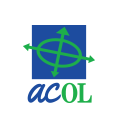Businesses
PPRS is used primarily by businesses like banks, lenders, lawyers, and companies involved in financing, buying, and selling goods. Some of these business are value-added service providers who use PPRS on behalf of other businesses and individuals.
Individuals
PPRS is also used by individuals. Most often, individuals who use PPRS are considering buying personal property such as a car or mobile home -- they want to check to see if there are any registered interests that could cause problems later. Individuals might also use the PPRS in order to inquire about registrations pertaining to themselves. In some jurisdictions, individuals might need to register in the personal property, for example, in order to register a notice of judgment or writ of execution.
There are fundamentally two things you can do in PPRS: register and search.
Registering is adding a record to the PPR. Searching is querying the PPR in order to identify and read records contained within the PPR.
Example search scenarios:
- Learn if a car or boat has an outstanding (unpaid) debt owing before you buy it. This search is available to everyone via the Lien Check Service.
- Learn if a person or business has already offered assets as collateral before you agree to lend them money or offer them credit.
- Confirm that a registration (such as for a loan or other financial arrangement) registered against you or your company has been discharged.
Example registration scenarios:
- Register a security interest (such as for a loan or other financial arrangement) in order to protect the priority of your interest over other secured and unsecured creditors.
- Register a judgment or writ of execution as received from a court decision. (Note: This scenario is not applicable for Newfoundland and Labrador and Prince Edward Island where judgments are registered in the Judgment Enforcement Registry and the Provincial Court Houses, respectively.)
- Amend a registration in order to reveal a change in the debtors, secured parties, or collateral involved.
- Renew a registration in order to extend its effective life span.
- Discharge a registration after the obligations have been fulfilled (such as a loan having been fully paid off).
For more detailed descriptions of registering, searching and administrative and support functions, see the PPRS Functions page.
There are four ways that you can access PPRS:
Lien Check Service -- Anyone with an Internet connection and a valid credit card can use the Lien Check Service to search for serial numbered goods, such as a motor vehicle, trailer, mobile home, boat, plane or outboard motor.
ACOL Client Account -- With the exception of the Lien Check Service, you will need an ACOL client account in order to use ACOL PPRS. There can be multiple users within your account. Each user will have a user ID and password in order to login to PPRS and perform registrations and searches.
Value-Added Service Provider -- If you do not wish to set up an ACOL account, there are also value-added service providers who are available to perform registrations and searches for you. Value-added service providers may also offer additional assistance in order to help you register or search correctly.
Government Registry Office -- In Nova Scotia, Northwest Territories and Nunavut, you are able to access PPRS at designated government registry offices. These are services for walk-in customers only -- no mail or electronic requests are accepted. See the jurisdiction's page for more information on locations and operating hours.
PPRS registration and search fees are defined in legislation. The fee amounts vary by jurisdiction - see the jurisdictions' fee pages for details.
- New Brunswick Fees
- Newfoundland and Labrador Fees
- Northwest Territories Fees
- Nova Scotia Fees
- Nunavut Fees
- Prince Edward Island Fees
- Yukon Fees
Note: The fee amounts do not include additional or higher charges that may be applied by a value-added service provider.
The Personal Property Registry (PPR) is a public-access registry mandated by the Personal Property Security Act. One purpose of the PPR is to provide interested members of the public with information about property interests, including interests that might not otherwise be evident to a lender or buyer.
The government does not provide public access to PPR data other than by the prescribed searches -- by debtor name, serial number, or registration number. The terms and conditions for PPRS access state that PPR data is to be used only for the purposes for which it is intended and it is not to be publicly disclosed through other means.







